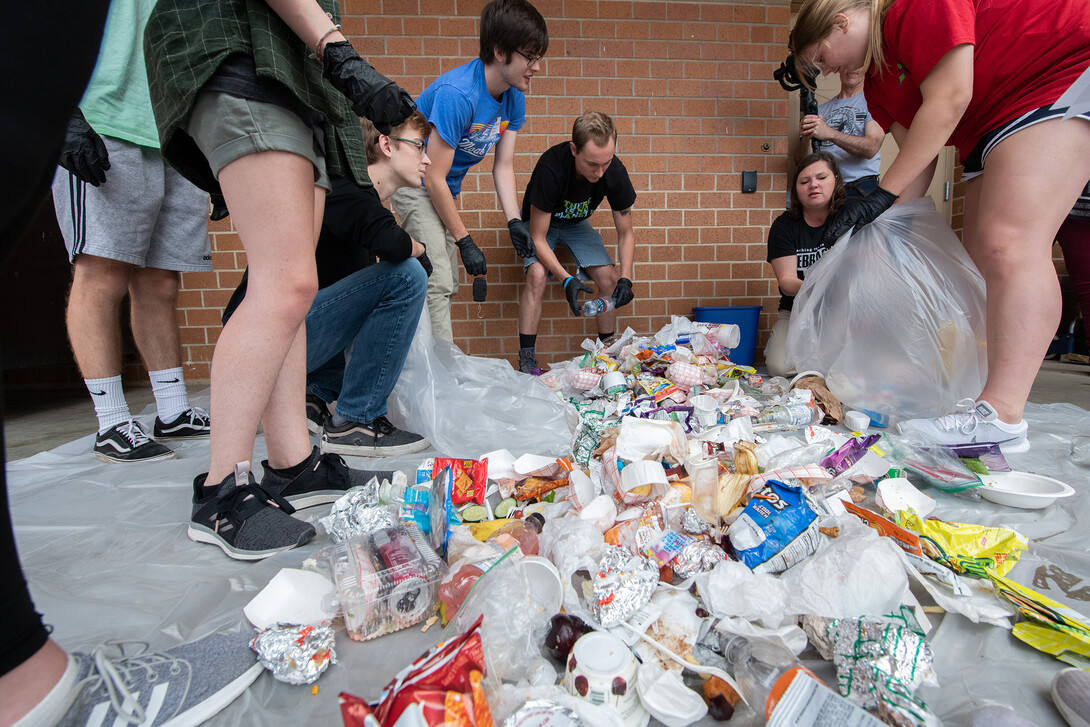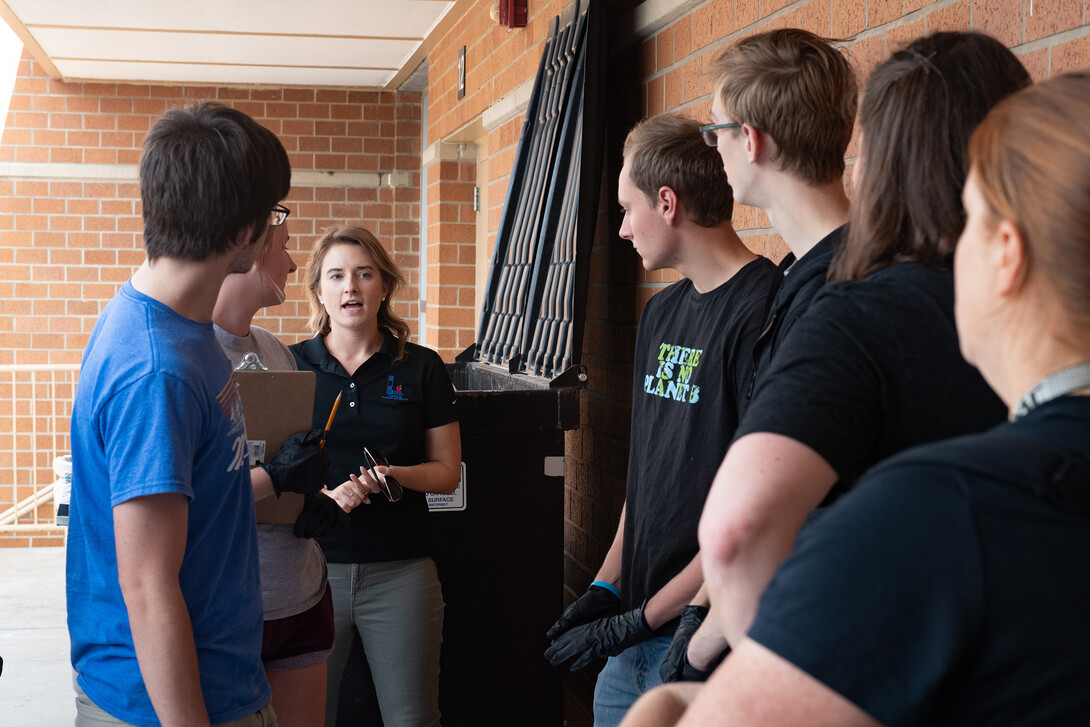
There were nine extra students at Southwest High School Sept. 25, but they weren’t there to take classes. These students were donning rubber gloves and diving into a day’s worth of trash.
The group from the University of Nebraska-Lincoln’s Environmental Studies Orientation class was thankful for the breeze on an unusually warm fall day. It kept them cool and alleviated some of the pungent smell as they sifted through the garbage — including remnants of lunch a few hours before — to conduct a waste audit for Lincoln Public Schools.

“This is going to be fun,” Christine Haney Douglass, the class instructor and experiential learning coordinator for the College of Agricultural Science and Natural Resources, said before the digging and sorting began. “You’re going to see artifacts of human life, but I want you to think about the big picture and how does this make you think differently, perhaps, about things that you can be doing and improving in your daily lifestyle?”
Then, the students began their task: sorting the waste to determine what trash was compostable and recyclable and what was bound for a landfill, and recording that data.
“Our students are learning valuable lessons about waste and what that looks like on the ground,” Haney Douglass said. “Conducting waste audits is becoming a practice in community and regional planning, and in business and supply management — such as use of Styrofoam versus a recyclable or compostable material — what is the cost benefit analysis from that?”
Luke Stursma, a freshman environmental studies major from Omaha, said he wasn’t thrilled about the assignment, but appreciated the opportunity to get his hands dirty doing real sustainability work.
“It’s going through garbage,” he said. “It’s not very enticing, but I also know that it does have a good impact on the school and good impact overall. So I’m happy to do it in that regard. I really like this major so far because you get to look at a lot of different things, and then you can hone in on what interests you most.”
Each fall and spring semester, the class is split into groups to conduct audits at five LPS sites. The data collected at each of these audits is given to LPS sustainability coordinator Brittney Albin, who shares the data with administrators. The partnership with the university, which began in 2015 has been successful, with 45 school sites receiving at least one audit.
“The audits provide a report of the amount of material found in the trash that could potentially be recycled or composted instead, and that gives the school guidance on what areas they could improve upon or what type of changes they would expect to see after implementing a compost program in the cafeteria,” Albin said. “For example, prior to implementing the compost program, the waste audit at Mickle Middle School indicated that 94% of the waste in the trash dumpsters could be recycled or composted. After starting the cafeteria compost program and revisiting recycling procedures, a follow-up audit two years later indicated that number had dropped to 44%.
“There’s only one of me, so there’s no way I could do these audits and have this information for administrators and our board without these students.”

All LPS sites now have recycling and composting programs in place, with more than 2.4 million pounds of material diverted from the landfill annually. Albin said LPS continues to improve that number through the data gathered from the audits.
“It can show us where we need to put extra recycling bins, for example, or if we need to improve our communication and education efforts with students,” Albin said.
Environmental Studies students work with LPS on larger projects throughout the year also. Those projects have ranged from building pollinator habitats to converting outdoor courtyards to green learning spaces. The partnership between LPS and the university earned national recognition in spring 2019 from the U.S. Building Council, when it was named among the Best of Green Schools.
Dave Gosselin, director of Environmental Studies, said experiential learning is a cornerstone of the curriculum in the interdisciplinary program.
“We want our students in the field, doing hands-on work, thinking through real-world problems,” he said.







